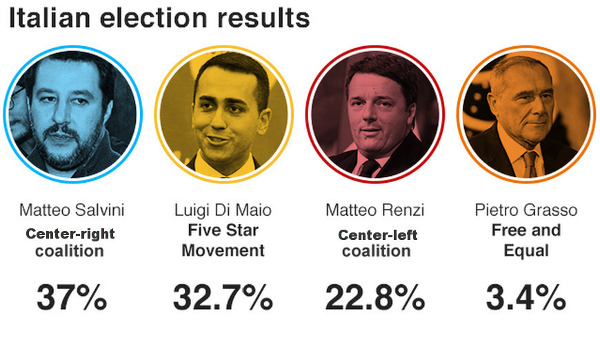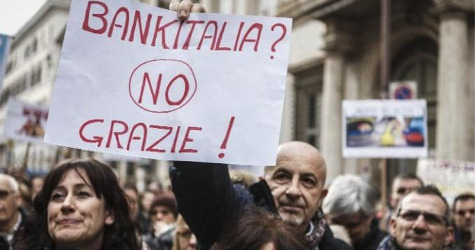The Wages of Our Discontent
It’s official – Italy has reached a record we would have gladly done without. Inflation in October was at 11.8%, the first time it has reached this level since 1984. In September it was at 8.9%, so it went up three points in one month, something that hasn’t happened since 1954. But for the world of labour, pensions and the unemployed, real inflation is even higher because it is hitting essential consumption that cannot be reduced.
The figure for Italy is among the worst in Europe. Our thoughts are, or should be, with those who live on a fixed income and are seeing it gradually diminish with no means of protecting themselves. It was already the case that Italian wages had fallen by 2.9% over 30 years. But now, the outlook is even worse. It’s clear that, if things continue along the current path, the inflation for this year, at no less than 8%, will be too big to be compensated by unions bargaining for higher wages.

Inflationary Drive and Stagflation
As if that were not enough, the governor of the Bank of Italy is warning that it’s not feasible to raise wages, fearful of triggering a price spiral. But the comparison with the 1970s does not hold up from any point of view – a particularly important one being that the causes of the violent inflationary drive are largely related to the ongoing war in Europe and its consequences on prices, starting with energy. In addition, the European Central Bank (ECB) in its November report estimates that a recession is likely between the last quarter of this year and the first quarter of next year. And it may not stop there. Stagflation – a real throwback to the ‘70s, is back – that is, the combination of inflation and a recession. Whenever we used to warn of this prospect in this newspaper, quite a few people would argue in other venues that such a prediction was outside the realm of possibility. Unfortunately, we were right.
And General Confederation of Labour (Confederazione Generale Italiana del Lavoro, CGIL) secretary Maurizio Landini is even more spot-on when he points out that bonuses are just band aids, not even particularly fit for that purpose, and that fringe benefits and the de-taxation of productivity wages are ineffective tools from the start, since company bargaining involves only 20% of workers and one of the recurring themes of economic analyses on the Italian crisis is the low increase in productivity, which, moreover, is not the fault of labour but of the system in general. It must be added, however, that the unions also need to answer some tough questions about why they are failing to leverage their power over wages, which they proudly tout, when it comes to the legislative proposal of introducing a mandatory minimum wage indexed to inflation, a just and necessary provision.
In the face of the dramatic wage emergency and the collapse of the purchasing power of pensioners and precarious workers, the CGIL secretary is rightfully calling for the use of fiscal instruments. However, in addition to the fact that this should not be a substitute for starting a real fight for wage increases (for instance, in Germany, Ig Metall (Industrial Union of Metalworkers) is threatening strikes to secure an 8% wage increase), it is plainly obvious to everyone that the government is moving in a radically different direction. While the “Aid No. 4” decree includes measures such as authorizing drilling between 9 and 12 miles from the coast or raising the ceiling for cash transactions to €5,000, the government is running to the rescue of the Confindustria, promising that at least one-third of the tax wedge cut will benefit business owners specifically, rather than being focused entirely on alleviating the real wage crisis. Furthermore, the tax on the extra profits of energy companies is expected to be no higher than 33%, when, given the nature of these earnings, taxing them at a minimum of 90% would be a matter of normality and fairness.
Two Injustices In One
But the government is going even further than that: the 15% flat rate taxation is set to be expanded to about two million self-employed, raising the threshold from €65,000 to €85,000, thus widening the tax gap, which has been highlighted by a major expert report as leading to further reductions in tax revenues. To this we can add their intention to reinstate the amnesty for capital that has illegally fled abroad (called “voluntary disclosure” to muddy the waters). As if that were not enough, the Giorgia Meloni government is planning to institute an “incremental” flat tax for the self-employed, whereby earnings that are higher than the best of the last three years would be taxed at only 15%, which is two injustices in one (and a violation of constitutional principles): those who earn more are going to pay less tax, and between two citizens with equal income, the one who has increased it more over the last year would be taxed less.
One hopes that the parliamentary opposition will fight these measures to the utmost. But in any case, in the current conditions in Parliament, this is not enough. There is an urgent need for a groundswell starting from the workplaces, the schools, the street protests, with the opening of a broad social conflict. Up to and including planning a general strike. •
This article first published on the Il Manifesto website.





